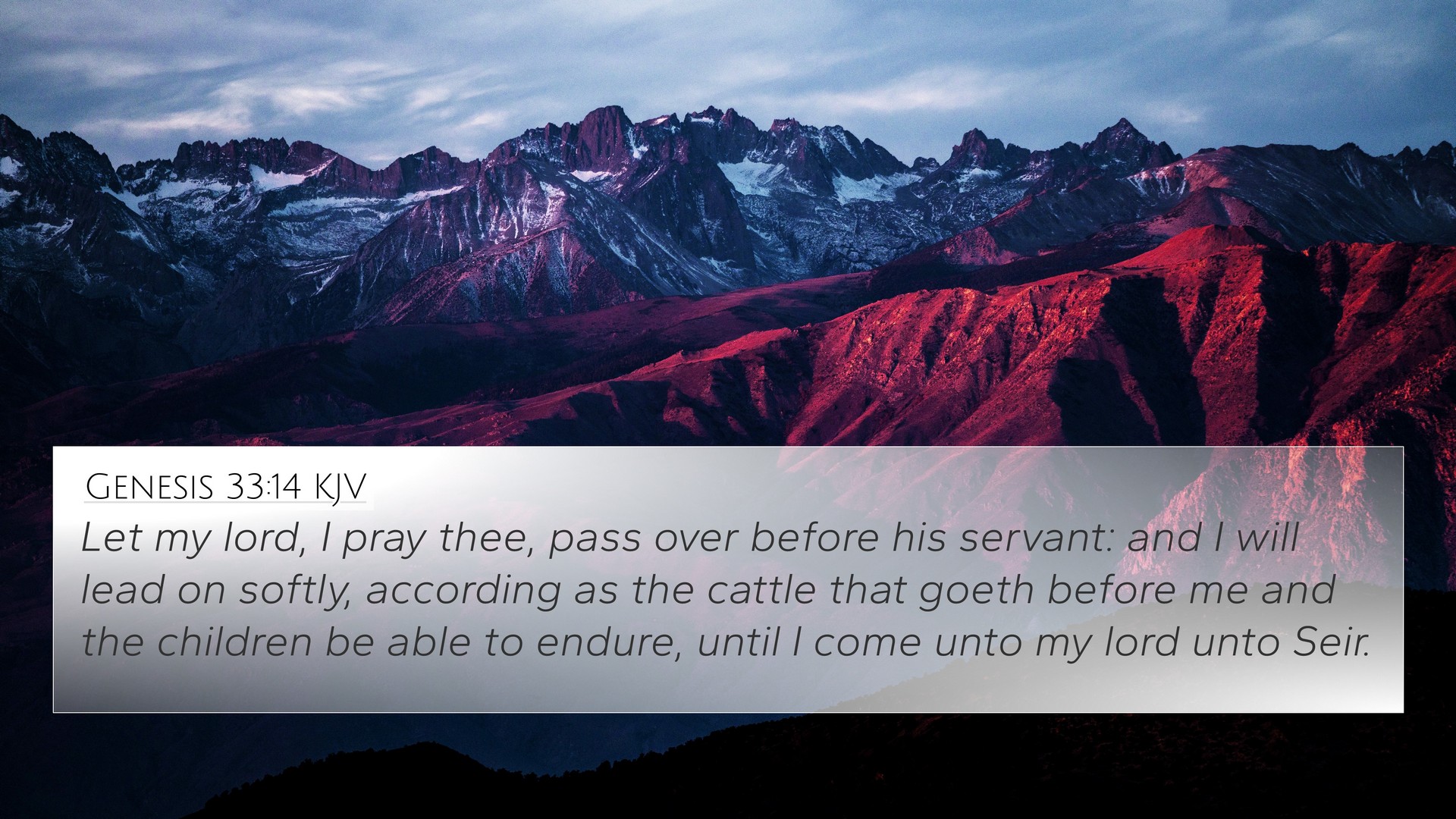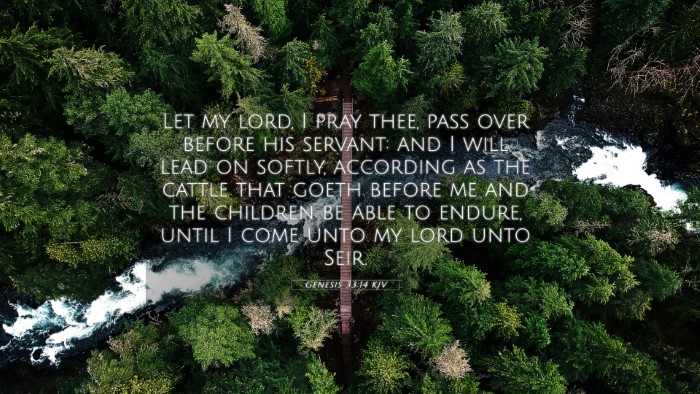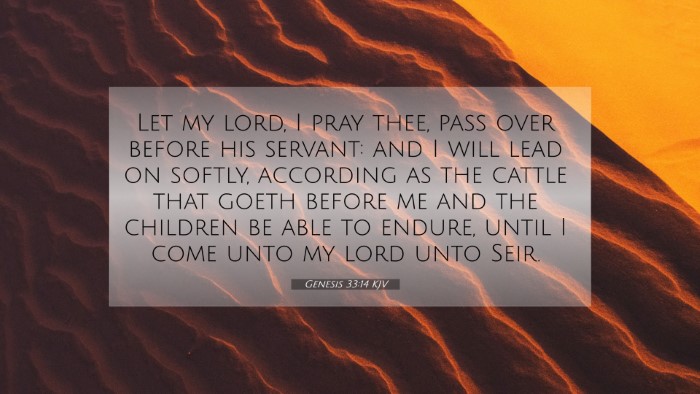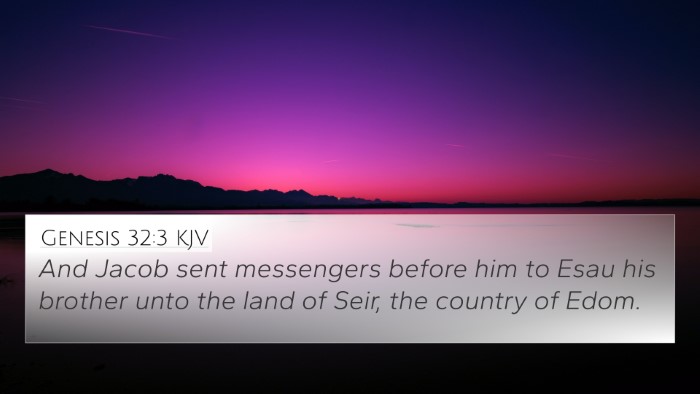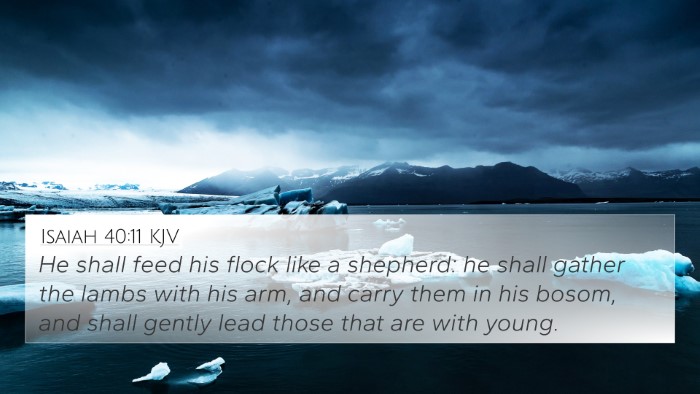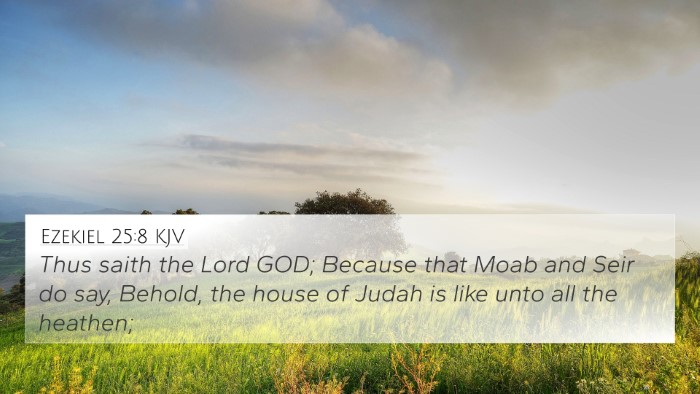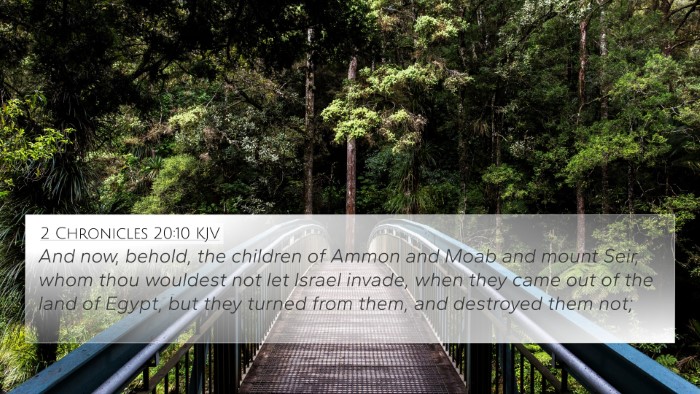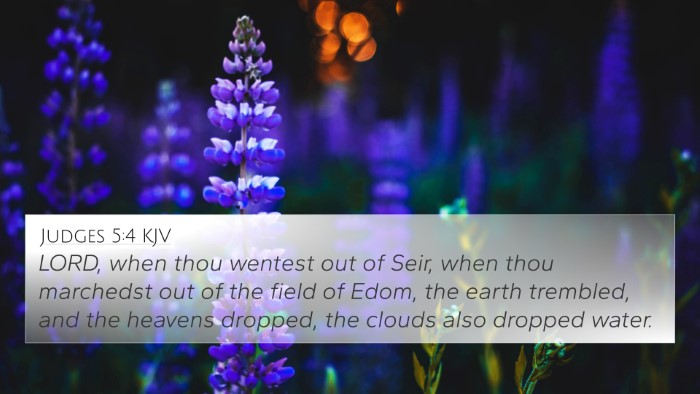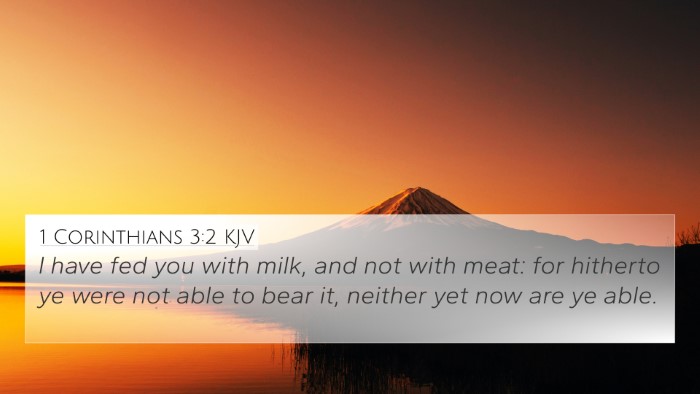Understanding Genesis 33:14
Genesis 33:14 states: “Please let my lord go on ahead of his servant, and I will move on slowly at the pace of the livestock and the children, until I come to my lord in Seir.” This verse is a key moment in the reconciliation of Jacob and Esau after years of estrangement.
Verse Meaning and Context
The context of this verse is critical for understanding its deeper meanings. Jacob, after a long absence, is returning to his homeland and approaching his brother Esau, who he had wronged in the past. The tense relationship between the two brothers brings an emotional weight to this encounter. Jacob’s offer to travel slowly and accommodate the needs of his family demonstrates his humility and desire for peace.
Key Insights from Commentaries
- Matthew Henry: Henry highlights Jacob's wisdom in approaching Esau with humility. Jacob recognizes Esau's strength and might, thus he seeks to diminish the possibility of conflict by presenting himself as vulnerable.
- Albert Barnes: Barnes emphasizes the significance of Jacob's approach—his choice to proceed slowly reflects his understanding that reconciliation takes time and patience, especially considering the past grievances.
- Adam Clarke: Clarke notes that Jacob’s invitation to Esau to go ahead represents not only a physical gesture but also a metaphorical desire for harmony and brotherhood, indicating a transformative moment in their relationship.
Cross-References for Genesis 33:14
This verse can be connected to several other scripture references that enhance our understanding. The following verses illustrate the themes of reconciliation, humility, and the complexity of familial relationships:
- Genesis 32:28: This verse recounts Jacob's struggle with God, symbolizing the transformation he undergoes before meeting Esau.
- Genesis 33:1: Here we see Jacob preparing to meet Esau, illustrating his fears and hopes regarding their reunion.
- 2 Corinthians 5:18: This passage speaks to the ministry of reconciliation, resonating with Jacob's desire to mend family ties.
- Matthew 5:24: Jesus emphasizes the importance of reconciling with estranged brothers before offering gifts at the altar, echoing Jacob's sincerity in making amends.
- Romans 12:18: This verse exhorts us to live peaceably with all, aligning with Jacob's effort to foster harmony with Esau.
- Philippians 2:3-4: The call to act with humility and consider others is evident in Jacob’s selfless approach to his brother.
- Luke 15:20: The parable of the Prodigal Son reflects similar themes of reconciliation and forgiveness, reminiscent of Jacob's return to Esau.
Thematic Connections
Genesis 33:14 is not merely a passage; it's a profound representation of several themes that recur throughout the Bible:
- Humility: Jacob exemplifies humility in his approach to Esau, which is echoed in the teachings of Christ regarding servanthood and humility (Matthew 20:26).
- Reconciliation: The act of seeking peace is a biblical theme found in both the Old and New Testaments, urging believers to mend broken relationships (Ephesians 4:32).
- Family Dynamics: The complexity of family relationships is a recurring subject in scripture, demonstrating God's desire for harmony (Psalm 127:3).
Cross-Referencing and Biblical Themes
Utilizing cross-references, one can explore the narrative and thematic connections that exist in Scriptures. This search can unearth rich insights into how God interacts with humanity, our relationships, and the paths to reconciliation.
Tools for Cross-Referencing
To delve deeper into the connections between biblical texts, consider the following tools for cross-referencing:
- Bible Concordance: A useful resource for finding specific words and their usage across scripture.
- Bible Cross-Reference Guide: Guides that provide connections between passages, enhancing understanding of themes and narratives.
- Cross-Reference Bible Study: Methods that focus on exploring relational insights between different scripture segments.
- Bible Reference Resources: Comprehensive collections of biblical cross-references that can facilitate deep dives into scripture analysis.
Applying the Insights
In applying the lessons from Genesis 33:14, individuals are encouraged to embrace humility and pursue reconciliation, mirroring Jacob’s actions with Esau. Here are practical steps:
- Reflect on past grievances and consider how to approach those involved with humility.
- Engage in dialogues that promote understanding and healing.
- Utilize cross-referencing tools to explore biblical principles that resonate with personal situations.
Conclusion
Genesis 33:14 serves as a poignant reminder of the importance of reconciliation, humility, and the progress of relationships over time. By studying this verse and its connections, believers can glean insights that foster spiritual growth and community harmony.
